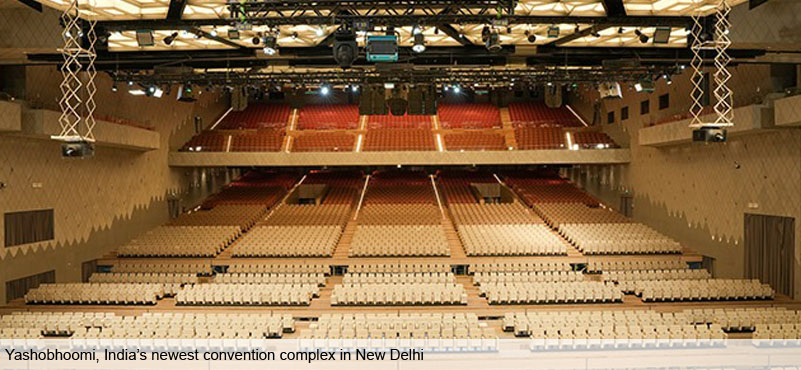Share the post "Inbound has Hit a Pause Button; with no promotions over the last few years"
There is much talk of inbound not having recovered, while overall, tourism is doing well. It would appear that only inbound is yet to recover, while domestic is booming and so is outbound? I also understand that inbound needs promotion, and this is not happening. What indeed, could be the issue? Why no promotion over the last few years? We speak with Rajeev Kohli, joint managing director, Creative Travel, one of India’s leading inbound specialists. Between him and his brother, Rohit Kohli, they carry a legacy of their father, the late Ram Kohli, the founder of Creative Travel and also the founder president, Indian Association of Tour Operators, the specialized industry association in inbound into India. Rajeev speaks to editor, Navin Berry in a candid conversation that goes into issues around inbound tourism.
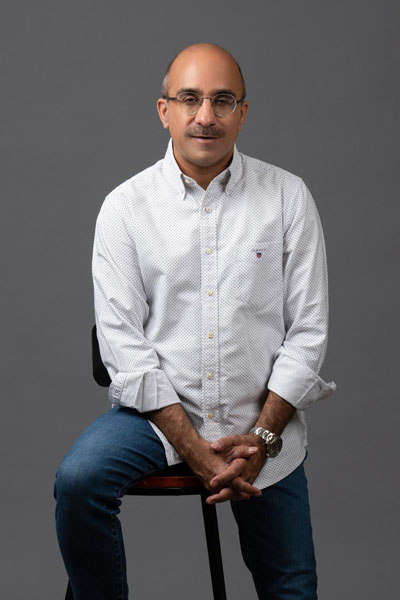
So, what is at stake? Who is not doing what?
Rajeev: This is not the fault of the Ministry of Tourism. It is not their fault. I know stories. This problem is much higher. So, what will the Ministry of Tourism do?
A few questions to begin. Number one, you are saying that inbound segment of Indian tourism, that is the one that is suffering. All others are doing fine. Airlines are going full. Hotels are doing well. Outbound tour operators are doing well. Foreign NTOs operating in India, by and large, are happy. Maybe, the US guys are not happy. But overall, now, where is the snag?
Are we saying if it’s not well, it’s just because we don’t have an advertising campaign or is there anything else deeper?
Rajeev: Numbers are down.
So, are you saying that the only solution is an ad campaign which is missing?
Rajeev: I believe that tourism, like every other consumer product, requires marketing. There is no difference between selling shoes, selling TVs, selling cars and selling tourism. End of the day, it is a consumer business. This is not social service. So, like in any consumer business in the world, if you are not visible, and we have not been visible for the last five – six years, whatever we’re getting, it’s not zero, but whatever we’re getting is organic for people who just have a desire to come. When we were marketing, when we were advertising, numbers were increasing. Now without advertising, consumer has choice.
If there was this advertising happening, marketing happening, now there’s a difference between advertising and marketing, where advertising means you can just start releasing ads, whereas marketing would look in-depth at source markets, identify which market we should do what, plug different messages to different markets, look at competitive markets with us.
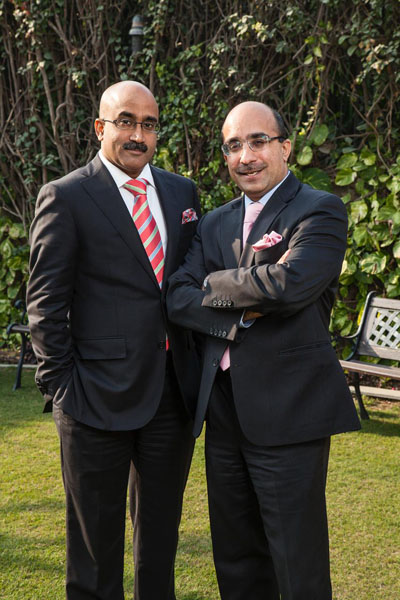
So, that whole ballgame, who’s doing that?
Rajeev: Nobody’s doing it. The ministry never got a budget. So, we call it promotion. Today, the entire burden of promoting India overseas is lying on the backs of the private sector.
And to the best of your knowledge and information, who are in the private sector doing any promotion, so to say, in the overseas markets? Which private sector organization?
Rajeev: Every little DMC is doing promotion in whatever way they can, Mr. Berry. We may not be able to afford ads on CNN. But we send newsletters, we send promotions of our tours, we send brochures. This is not new. The growth of the Indian tourism industry, the story has been on the backs of the private sector.
Government has been a facilitator, government has assisted, but bulk of the heavy lifting, the boots on the ground, the foot soldiers, the sales people, have been the private sector.
What did 13 tourist offices do, was minuscule in the overall scheme of things. They had their roles. But it has not been the government alone that has carried the burden.
I don’t know if you read what I said in IATO convention. Where I did say, sitting next to Suman Billa, the director general, “what the hell is wrong with you guys? Why are you telling the government only to do things? Industry has money. IATO has money. Why are you telling the government to come up with a new brand? If a new advertising brand has to be brought into the market, this is our product. It’s not the government’s product.
So, why is IATO not taking the lead?
Rajeev: That’s best for IATO to answer. I can only say the quality of leadership, is it the best we can put up? Let’s be fair. Every association, in our business, is being led by those who are not too much in the business.
How much is the closure of the overseas tourist offices impacting us today? Had they been there, you would have had some support somewhere?
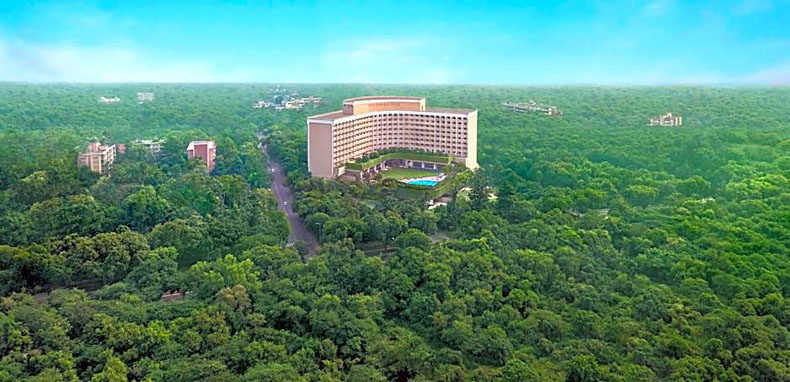
Rajeev: Listen, let’s be very fair. The overseas tourist offices were expensive products. We had the best located offices in the world of any tourist office. At one point in time, we had amazing tourist offices.
You know, Bala was there, P.K. Dong was there, Venkat was there. We had good people. Tourist offices had limited budget, limited manpower. Their closure was definitely a loss of boots on the ground. But the thing is, the closure of the tourist offices was part A of the story. Part B of the story, which was in place, which was policy, which had stated, and I personally have sat through meetings to appoint representation companies overseas. This is recorded in the Ministry of Tourism’s files. There are meetings on this.
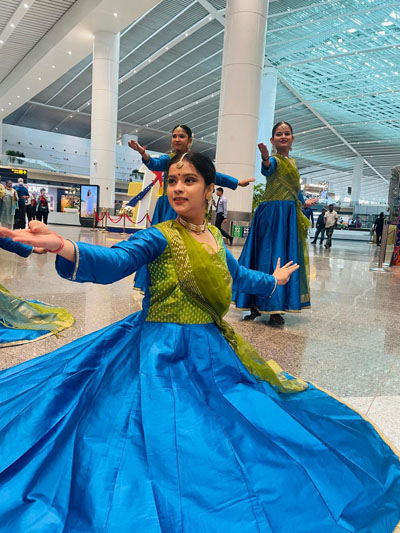
So, this is a two-part story. Second part never came through. I personally have written a white paper for the Ministry of Tourism on how to get this through faster.
So, what you are saying is, one after another, continuous blows, some kind of apathy perhaps or indifference to promotion. But this is also coming at a time when our infrastructure has improved so much. Airport capacity has improved. Local connectivity by air has improved so much. So, isn’t that a double whammy? We are in a better position to cater to inbound, and we are not there marketing and selling our product?
Rajeev: Yes, but I mean, the fundamental is, it’s just a fundamental marketing problem, promotion problem. I mean, it’s never been a question. I have worked now for the last 31 years. It doesn’t matter what the infrastructure we had. We did a damn good job in making people go back happy. Now, we have the ability to make more people go back happy.
Would the hotel industry have rooms for inbound?
Rajeev: There is a struggle in key cities, in a few key cities like Jaipur, Udaipur. And yesterday, a key hotelier came to the office. They have seen a drop in business travel, especially from the US. The tariffs have impacted. We do have perception problems. Because of our friendliness with Russia, because of our stand on Israel, I mean, various issues.
Have you seen any other fall from any other market?
Rajeev: All markets are down. If I speak to any of my colleagues in the industry, including my own team, all markets are down.

How is the US leisure doing into India?
Rajeev: Down.
By how much?
Rajeev: I don’t have the exact figure. But it is down. I mean, there’s just no demand. People were at Virtuoso last month. There’s no demand. People like us, people love us, people want to speak to us. But there are no phones ringing. And why will a foreign tour operator invest money in marketing a destination which is weak? He’s not going to spend money. It’s simply a consumer game.
So, if I look at Creative Travel, how are your numbers doing as on date?
Rajeev: As a company we are doing fine, though we wish we could do better, but when the entire industry is struggling it is hard for even companies like us to track stronger growth. There is plenty of head room to do much better. If you see the bigger picture, it’s for the country to earn more dollars and pounds!
And year on year to last year?
Rajeev: Very few, if any, have come back pre-COVID. Even though that’s not a great benchmark. If you had a small pre -COVID and you did okay, that’s okay. I mean, nothing. But it is a struggle. Every file is a fight. So, the fight to convert is harder. The fight to generate interest is harder.
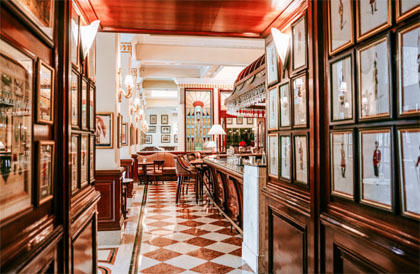
It’s one thing if you’re not converting because you’re expensive or because the competition is better. But to fight, you need to have demand.
For instance, somebody asked me yesterday, with last five days of turmoil in Nepal and cancellations to Nepal being something like 70 to 80 percent, some of that cultural bound traffic could easily have been diverted to India.
Rajeev: Yeah, but last-minute diversions are not that easy also. If the client says, oh, I’m going to Nepal. All of a sudden, Nepal is burning. What does it matter? Let me go somewhere else. I mean, the mind frame of the guest is not, OK, the Nike shop is closed. I’ll go to the Adidas shop.
But would it not be easier that when he’s dropping his plan to go to Nepal, he may come to another similar destination, say, perhaps Uttarakhand or somewhere?
Rajeev: Nepal is Nepal. Nepal is a culture. Nepal is not only the mountains, but it is also how smart is the DMC or the supplier. And it was not only Indian-led business going to Nepal. It’s also Nepalese business coming to Nepal.
Yes, yes. Increasingly, it is more Nepalese interest, Nepalese driven, more and more. So coming back to our story here, basically you’re looking for promotions to revive demand.
Rajeev: For me, it’s very basic. Rest will come later. Promotion is first. I don’t need more airports. I would love more hotels, but more hotels don’t come up overnight and more hotels are being built. I don’t need more roads. My roads are good. I don’t need more restaurants.
So, which are the markets that you would look at right now?
Rajeev: Europe, overall, for sure. I would look at Latin America. Southeast Asia is a low-value market. But look, we need value markets. With limited capacity, thanks to Indian social events, we need to generate demand in value-driven markets, not volume-driven markets.
Name me two or three value -driven markets, precise markets, where you can succeed quicker.
Rajeev: I will say, US. I will say Australia, Let’s say our core markets, UK, Germany, France. We need to rebuild what our core markets were.
And how is the Middle East doing for us?
Rajeev: So, my team was in Kerala just now and they saw a lot of Middle Eastern travel. But Middle East travel comes here for very different reasons. Middle East travel is not coming for culture. Middle East travel is coming for the rains and for medical.
What about the expats in the Middle East? They used to be a big catchment area once upon a time?
Rajeev: It could be. If we just did UAE expats coming to India for the long weekend, it could.
So, what’s the bottom line then, Rajeev, right now?
Rajeev: Bottom line is, if you need to increase numbers, and we’re not talking about infrastructure building, we’re talking about shoring up numbers through simple promotion, okay?
What about pricing of the Indian market?
Rajeev: I don’t buy the argument that we’re becoming expensive. Yes, our prices are going up, but they’re going up all over the world. Europe is booming at ridiculous rates. So, pricing plays a role. You can very easily take the angle, ‘price drop karo and demand badao’. Which is what Vishal Megamart and Sabke Bazaar and Reliance does. But we don’t need that market. I mean, we could, but we don’t have the ability to do that. That’s a mass consumer marketing game.
And this is not a very complicated problem, honestly. Your product is fine. But what’s the point of having a product if you’re not promoting it?
In fact, the product has almost reached that point where we thought we wanted it to be. So, it’s a pity we’re not doing anything about it.
Rajeev: So, we don’t have a product issue. Before, we used to apologize for our road conditions. I mean, I went to Mussoorie for a wedding a few months ago. I stopped at the midway and I said, what is this midway? I mean, it was like a fancy mall. It was amazing.
We are not being apologetic as we used to be apologetic for 15 years ago.
Right, absolutely.
Rajeev: We no longer have a product problem. We have the reverse of what we had, earlier. Before we used to put money and we had a product problem. Now we don’t have a product problem and we are not talking about it. We are not putting that money which we did earlier.

